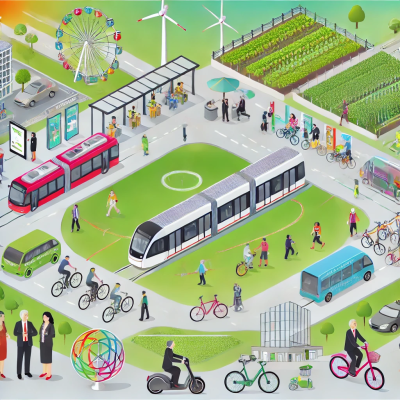Project summary
129 million EU citizens live in sparsely populated areas that suffer from poor or non-existent public transport services. Dependence on private cars is common. For groups without access or ability to drive a car (the economically vulnerable, disabled, young and elderly) the lack of public transport options means reduced economic opportunities and increased social isolation. This widens inequalities and accelerates the depopulation of rural areas (JRC, 2022).
Public (Transport) Authorities struggle to provide cost-effective, convenient public transport in these areas due to low number of paying passengers per kilometer. New Sustainable and Smart Mobility Strategies (SSMS) involving intelligent transport systems (ITS) such as Mobility as a Service (MaaS), on-demand bus services and ride-sharing show potential to tackle fixed transport systems and offer higher quality services while reducing operating costs (41% quality-cost ratio improvement) and CO2 emissions up to 72% (K2Centrum, 2022). But most previous European projects have focussed only on urban areas with a higher passenger density. The implementation of ITS in rural areas demands a distinct regional policy support framework, one that diverges from current public transport policies. To date, regional Public Authorities have had no opportunity to develop or test such a framework.
Rural Mobility is the first initiative in Europe to combine ITS with novel policy approaches to connect Europe’s rural regions to high-quality transport and economic opportunities. Led by the province of Overijssel, the seven participating authorities will improve regional transport policies by piloting intelligent transport systems and using best practices in governance models, financing structures, stakeholder management, and end-user engagement from across the European regions. The project aims to demonstrate how rural transport policy can actively support the economic and social inclusion of previously isolated populations.
